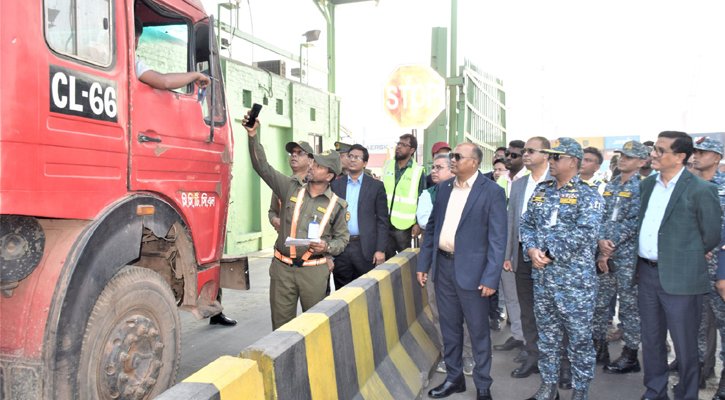Chittagong Port has taken a significant step toward modernizing its operations with the launch of an online gate pass system for cargo vehicles. The system, which was officially inaugurated by Rear Admiral SM Moniruzzaman, Chairman of the Chittagong Port Authority, promises to streamline the entry and exit process for over 3,000 cargo trucks daily, reducing congestion, accidents, and wait times at the port.
The online system will ensure better organization and monitoring of cargo vehicles, both inside and outside the port, improving overall traffic management and security. This development is expected to make the port more efficient, allowing faster handling of goods and reducing operational costs.
Speaking at the launch event on Tuesday, February 18, Rear Admiral Moniruzzaman highlighted that the system includes a comprehensive database of all vehicles, drivers, and helpers involved in import and export activities at the port. The new system will make vehicle tracking and monitoring easier for port stakeholders and contribute to better security and operational efficiency.
In response to a question, he explained that the system being used, known as the Terminal Operating System (TOS), is one of the most widely used systems at ports worldwide. Developed by Navis LLC, USA, the system’s technical support is provided by Datasoft Systems Bangladesh Limited. To ensure data and application security, efforts have been made to manage all port systems, including TOS, from the National Data Center.
Port Secretary Mohammad Omar Faruk added that the online gate pass system was first introduced on a trial basis on January 1, 2025, after discussions with stakeholders. Since then, the system has been functioning smoothly, eliminating the need for drivers to line up at the port gates, which previously caused congestion and road blockages.
Through the port’s website or mobile app, stakeholders can now pay fees and receive the gate pass 24/7, offering greater convenience and reducing traffic issues at the port. The trial phase of the system has not encountered any significant complications, further proving its efficiency.



